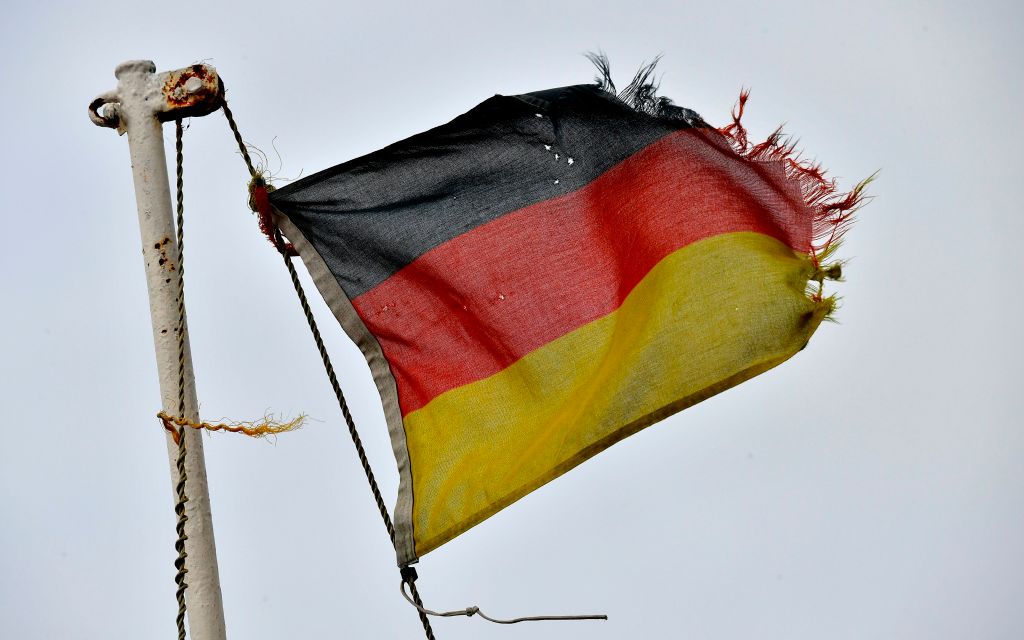Back in the early 1990s, a few years after the Berlin Wall came down, I went back to the house in Dresden where my father was born. The house was on the outskirts so my father and grandmother survived the bombing – they got the last train out of Dresden before the Red Army arrived. The family I found there had been there since 1945. They’d been expelled from Silesia when Stalin handed the region over to Poland, and had ended up in Dresden along with so many other displaced Germans. They’d been living there for half a century, three generations under the same roof. They didn’t own this house – like almost everything in East Germany, it had been owned by ‘the people’ (i.e. the government). They were excited by their new future in a reunited Germany, the ‘blooming landscapes’ Helmut Kohl had promised them. I wondered what would become of them. Ten years later, I went back again to find out.
What had become of this East German family and the dormitory town they lived in was a pretty good paradigm for what’s been happening in Eastern Germany as whole. The town centre had been spruced up, the infrastructure was brand new, but there wasn’t much going on – it felt like a museum. The house was a lot smarter too, kitted out with all the latest mod cons, but the man who’d greeted me ten years before was out of sorts – his daughter had gone west and he was unemployed. His daughter was one of the winners of German Reunification, he was one of the losers, and he knew it. His life would have been better if the Wall had never come down.
I thought about that family when the German election results came in last Sunday. I was at the German Embassy in Belgrave Square, surrounded by youthful, successful Germans. A good many of them were from the East. They spoke perfect English (of course), far better than my schoolboy German. Their young lives were full of promise, and it was all thanks to reunification. But what about their parents, back East? What prospects do they have?
Last Sunday’s election results showed that, a generation since the Wall came down, there are still two Germanies. Eleven per cent of West Germans voted for Alternative für Deutschland, Germany’s anti-immigration party. Twice as many voted AfD in the East. Most West Germans voted for centrist parties – Angela Merkel’s centre-right Christian Democrats or Martin Schulz’s soft-left Social Democrats. In the East, far fewer voters backed the SPD, or Merkel’s CDU.

It’s not just about immigration. Die Linke, Germany’s hard left party, polled more than twice as many votes in the East than in the West. Left or right, the message is clear – an awful lot of East Germans have lost faith in the centrist parties which have ruled the Bundesrepublik since the war.
Relatively speaking, German Reunification has been a remarkable success. In 1989, the German ‘Democratic’ Republic was bankrupt. While West Germany had enjoyed forty years of prosperity, forty years of Marxist-Leninism had brought the Eastern half of Germany to its knees. You had to travel here to witness the devastation of a nation where private property had been virtually abolished, where private enterprise was practically prohibited: nothing worth buying in the shops; nothing in the cafes worth eating; desolate, deserted farms; filthy decrepit factories; huge housing estates in the middle of nowhere with hardly anyone left in them. Meanwhile, the Western half of Germany had become Europe’s powerhouse, the envy of the free world. It was the most dramatic example you can imagine of the comparative merits of despotic communism and democratic capitalism. The East German government had simply walked away, and left West Germany to clear up the mess.
A generation later, Eastern Germany is functioning again, and its regeneration is a testament to the hard work and ingenuity of all Germans – East and West. To resurrect an entire country in half a lifetime is an incredible achievement, but to restore the fortunes of its people will take at least half a lifetime yet. Capitalism is the only solution for East German woes and in large parts of East Germany it’s already working, but it’s a blunt instrument and its results have been uneven. Berlin is booming, Leipzig has been transformed and the Baltic Coast is beautiful, but the small towns where no-one goes are full of people who’ve been left behind, and a lot of those people feel abandoned by the political establishment. These are the people who’ve voted for Die Linke, and are now voting AfD.
What will become of these forgotten people? For middle aged men my age, probably nothing. The man who lives in my father’s old house is too old to retrain. He’ll never work again. But the younger generation is a worry. They’ve too much life ahead of them to sit around reminiscing about the old days, when the state organised every aspect of their lives, from Kindergarten to Altersheim. West Germans will be hoping the mini Wirtschaftswunder of Berlin and Leipzig somehow works its wonders on the forgotten towns of Mecklenburg and Brandenburg – and soon. Otherwise, I fear the fatherland I still think of as my Heimat may have more than a mere protest vote on its hands.






Comments